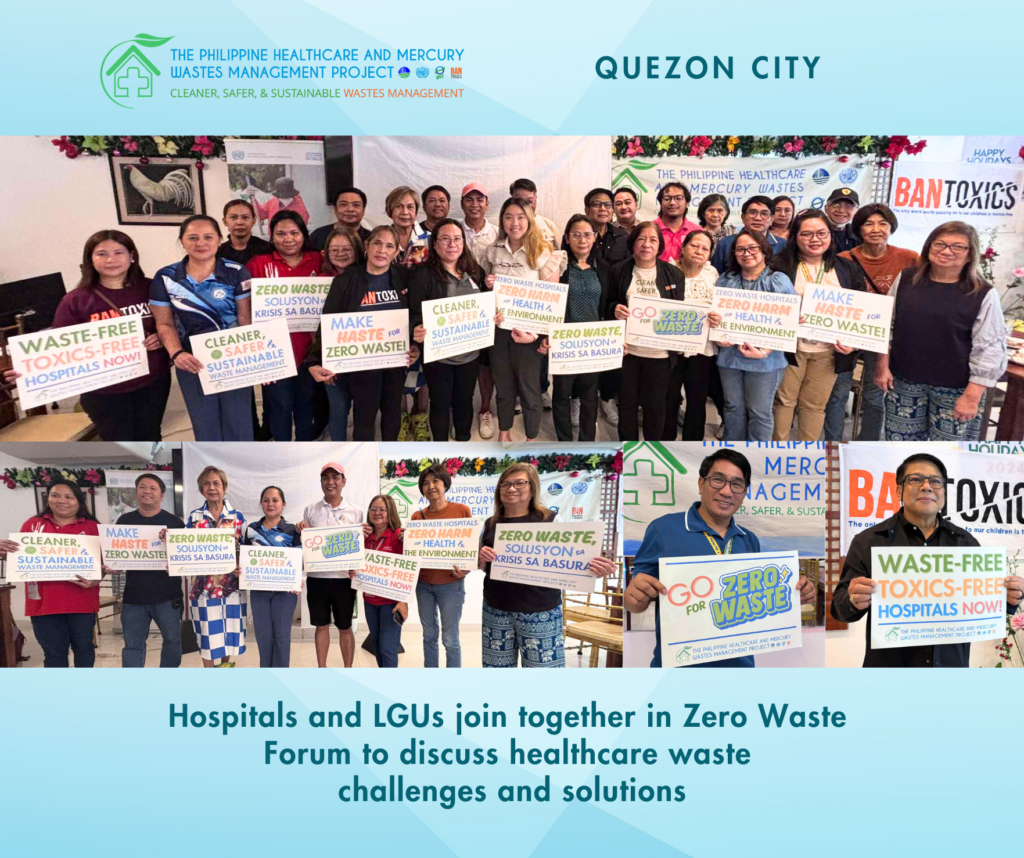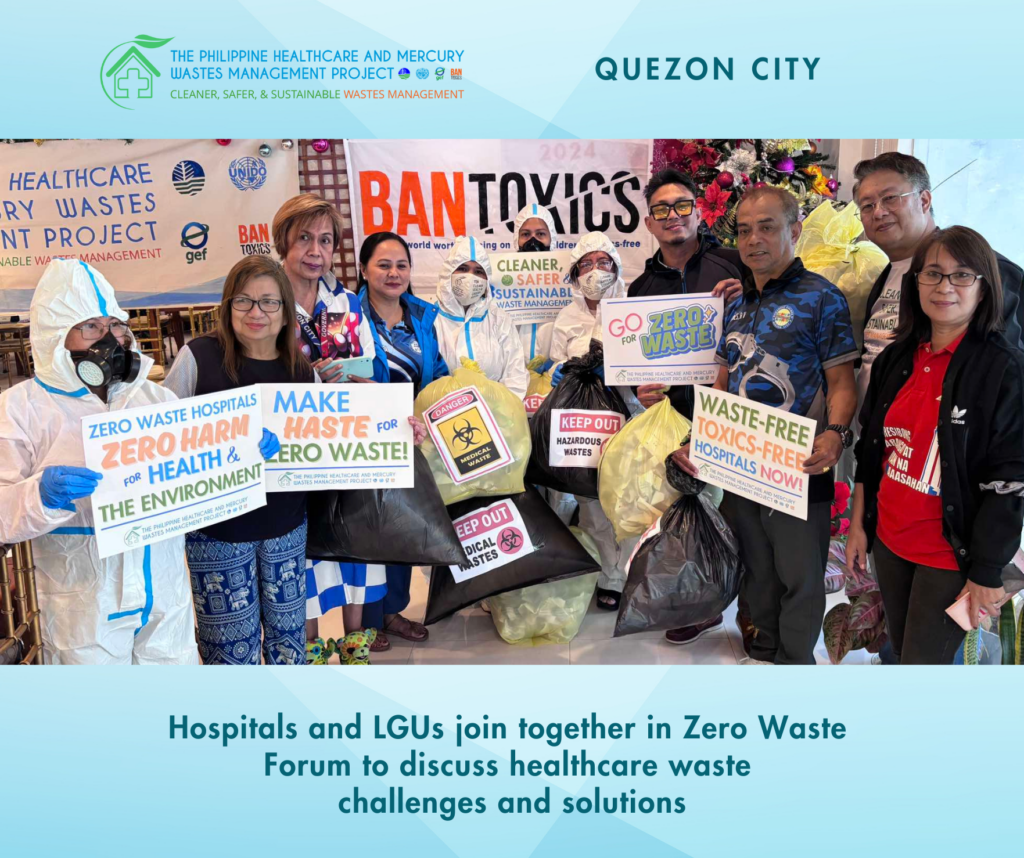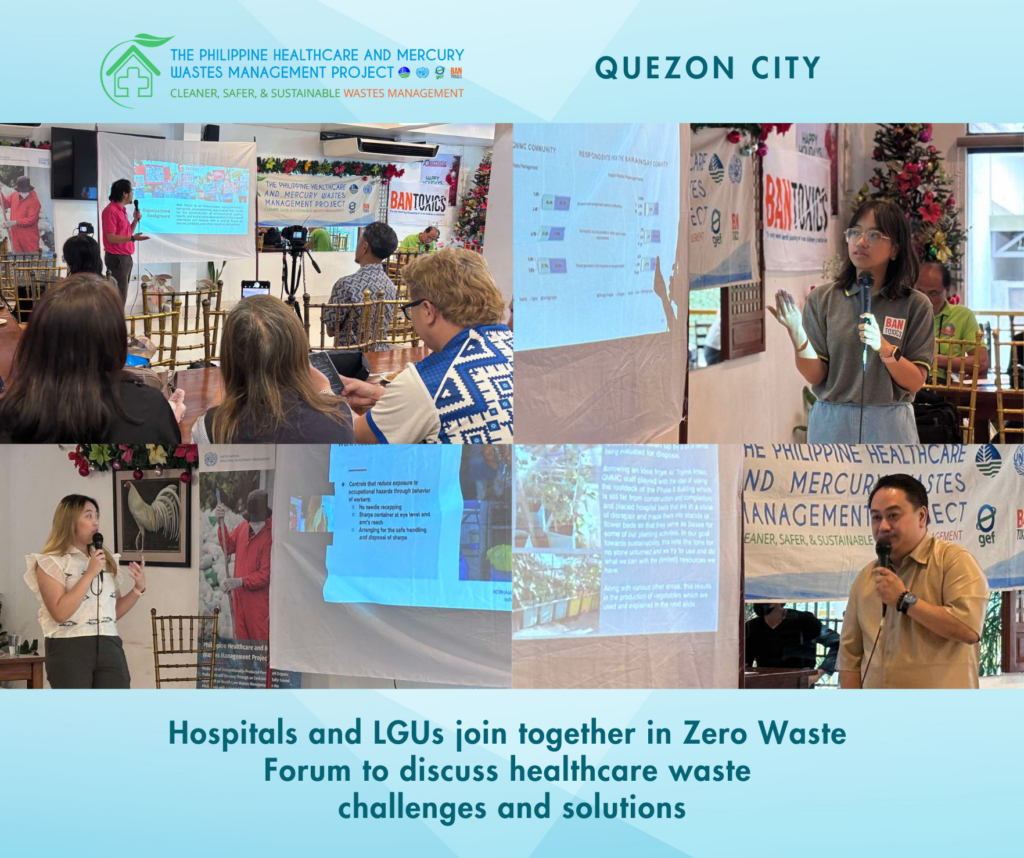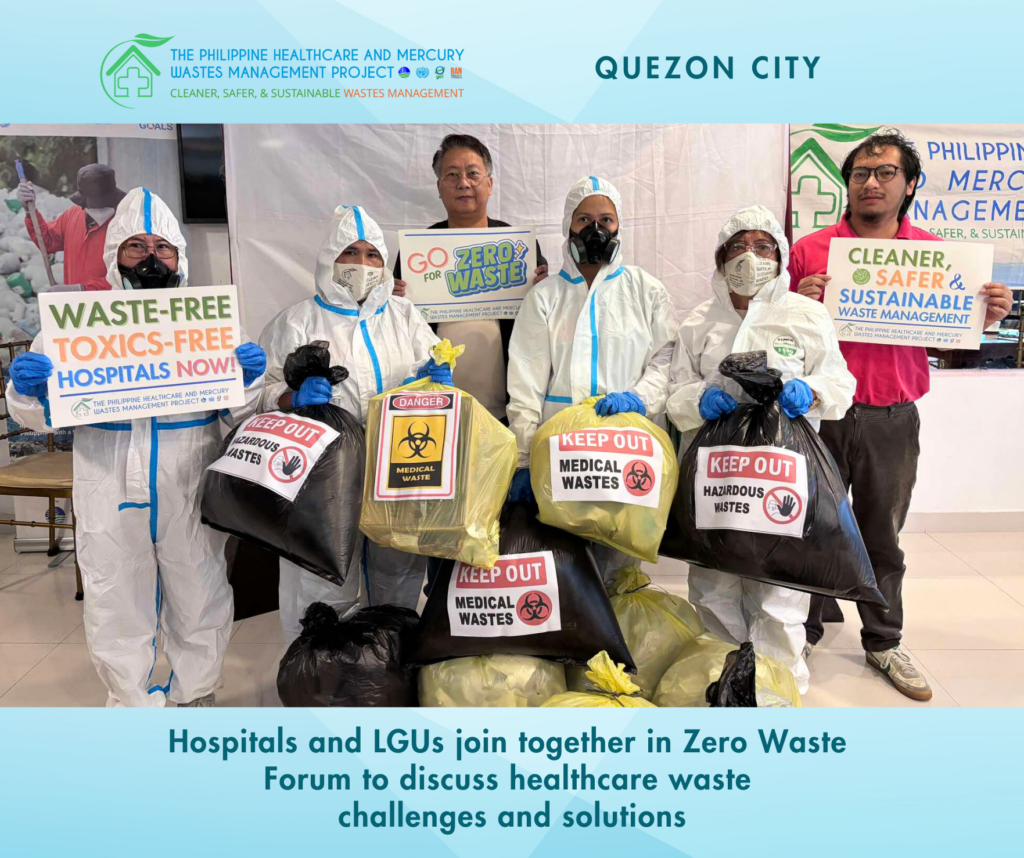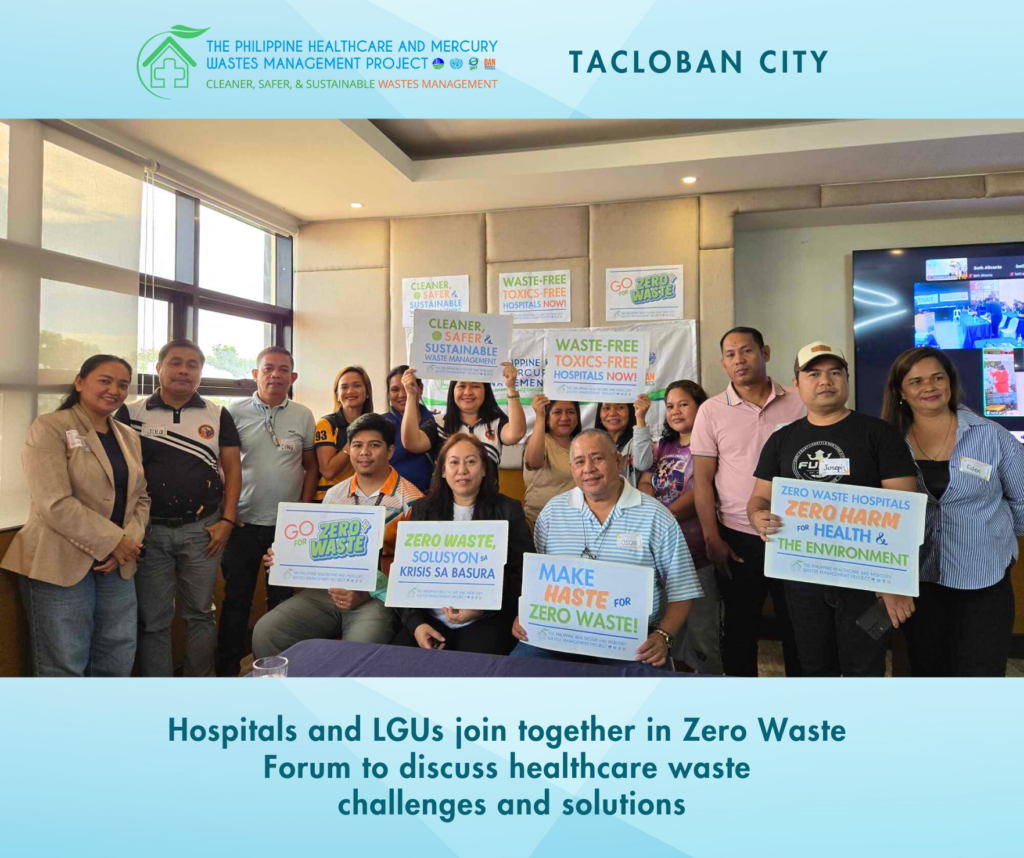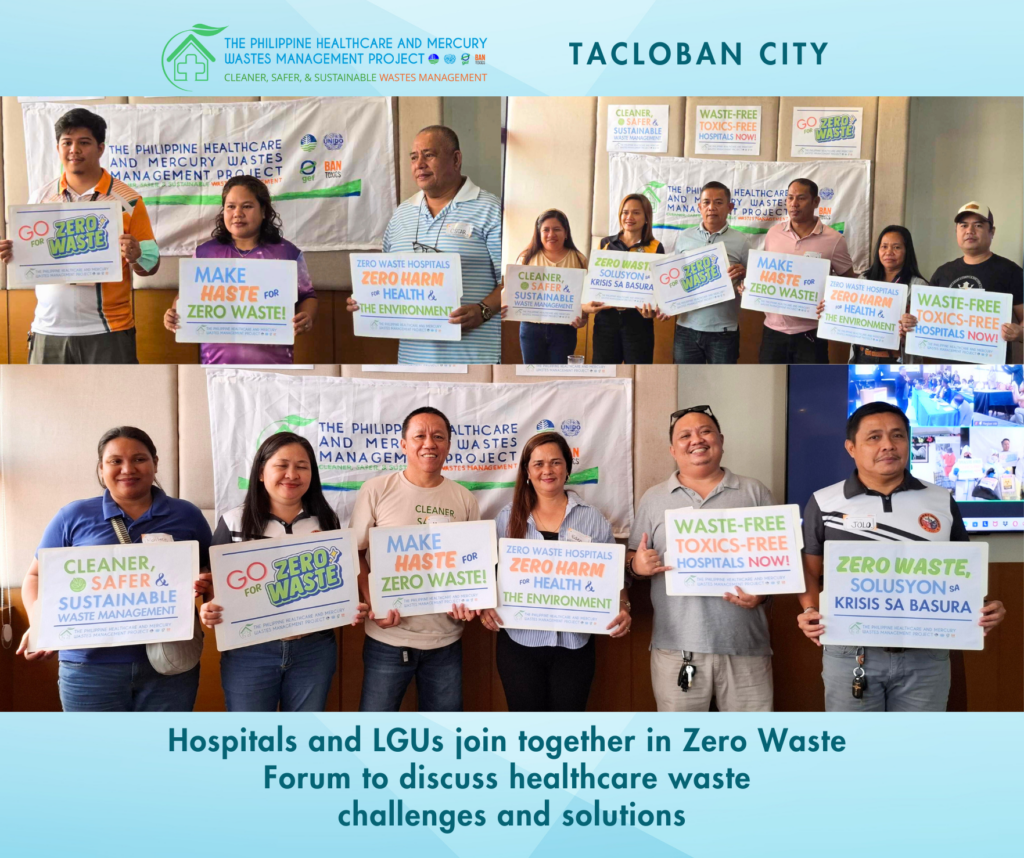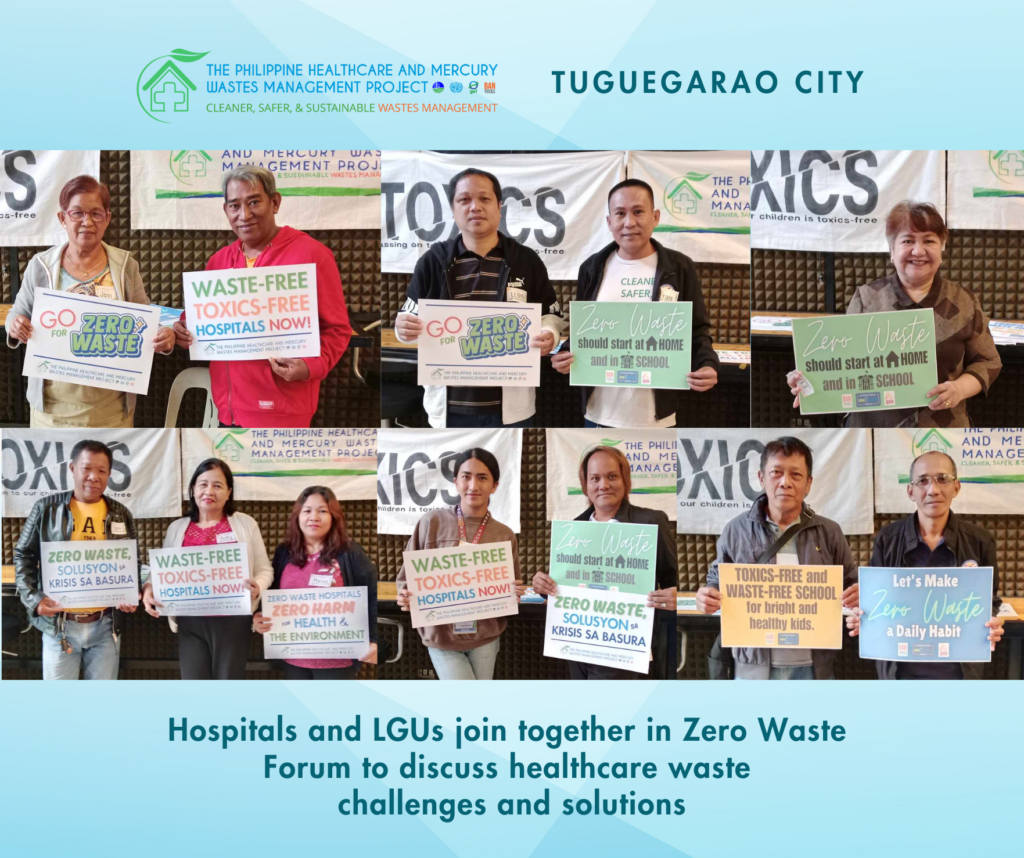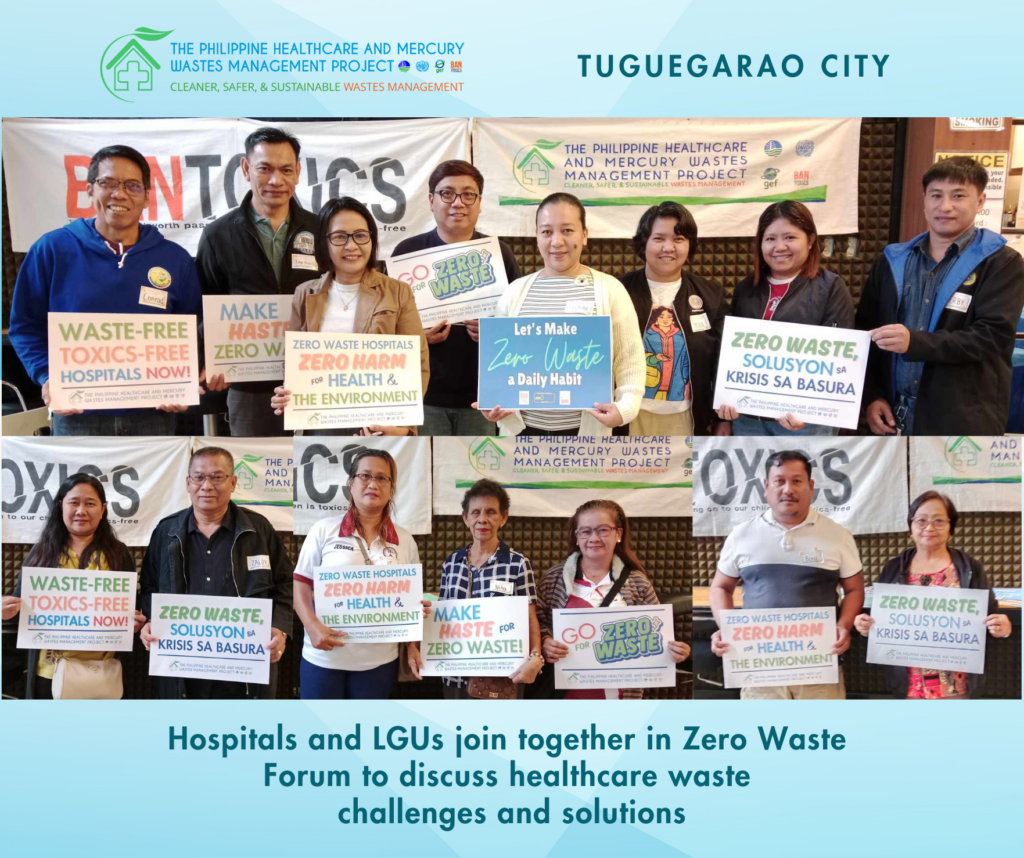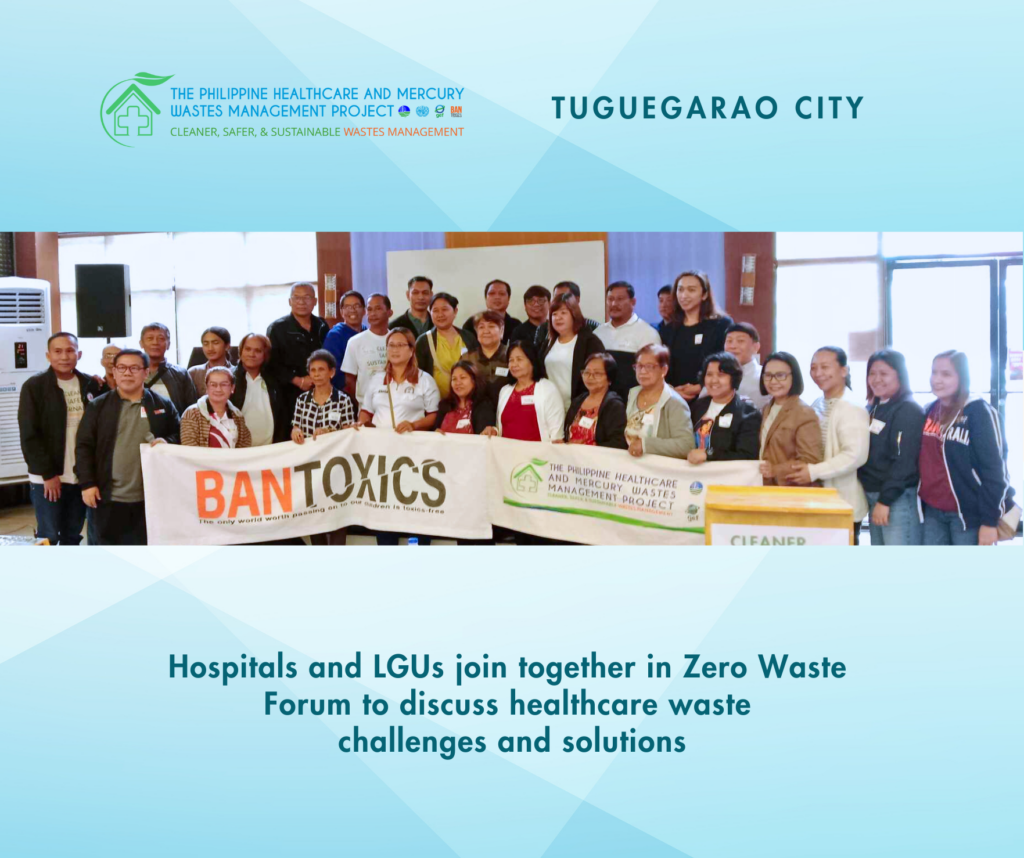January 17, 2025 – The Philippine Healthcare and Mercury Wastes Management Project (HCW Project) held a forum today in celebration of International Zero Waste Month, highlighting the need to promote Zero Waste practices and principles in the healthcare sector, foster collaboration, and address challenges in implementing sustainable waste management solutions.
The event, dubbed “Zero Waste for Health: Advancing Sustainability in Healthcare Facilities,” was conducted simultaneously in three regions where the HCW Project is being implemented: Region 2, Region 8, and the National Capital Region, with a centralized online program. It was attended by healthcare professionals and waste management staff from partner hospitals of the HCW Project, along with local government representatives from their surrounding barangays and cities. The participating hospitals included Quezon Memorial Medical Center (QMMC) in Quezon City, Cagayan Valley Medical Center (CVMC) in Tuguegarao City, and Eastern Visayas Medical Center (EVMC) in Tacloban City.
According to Jam Lorenzo, BAN Toxics Deputy Executive Director and Manager of the HCW Project, Zero Waste is a concept that needs to be promoted in waste management systems as traditional approaches, such as focusing too much on recycling, no longer adequately address the increasing volume and complexity of healthcare waste, as well as the global waste crisis.
“Healthcare waste management remains a rapidly growing problem in need of urgent action, such as incorporating Zero Waste principles, which include waste minimization and ensuring environmentally sound practices and technologies are in place in hospitals and healthcare facilities.”
The HCW Project aims to improve healthcare waste management in the country with a special focus on reducing the release and emissions of hazardous substances from healthcare waste. The five-year project, funded by the Global Environment Facility (GEF), is being implemented by the United Nations Industrial Development Organization (UNIDO) in partnership with the Department of Environment and Natural Resources – Environmental Management Bureau (DENR-EMB) as the national lead agency, with the environmental NGO BAN Toxics serving as the executing entity.
The celebration of Zero Waste Month every January began in 2012 in the Philippines, when the youth sector presented a Zero Waste Manifesto. On May 5, 2014, Presidential Proclamation 760 was signed, officially designating January as Zero Waste Month. The first international celebration of Zero Waste Month took place in 2023, led by the international environmental organizations such as Global Alliance for Incinerator Alternatives (GAIA) and Break Free From Plastic (BFFP).
The DENR-EMB’s theme for this year’s Zero Waste Month centers on the cooperation and collaboration of the informal, private, and public sectors to encourage partnerships in reducing waste and minimizing environmental impact.
During the forum, Dr. Michelle Reyes, M.D., Sustainability Officer of Healthcare Without Harm (Asia), delivered a presentation on Zero Waste principles and practices in healthcare facilities. She provided actionable examples for moving forward, such as purchasing safer and more sustainable products, reducing plastic use, and identifying items that can be minimized or eliminated.
Representatives from the QMMC, CVMC, and EVMC discussed their waste management challenges and best practices. Notable practices at QMMC include mandatory training and orientations for personnel on waste management, use of reusable Personal Protective Equipment (PPE), implementation of digitalization for waste collection data, urban gardening for composting, and a rainwater collection system.
A common concern across all partner hospitals is the insufficient waste storage facilities, further worsened by inefficient or delayed collection of general waste by Local Government Units.
Meanwhile, BAN Toxics shared the initial results of a Knowledge, Attitude, and Perception (KAP) survey conducted in the three partner hospitals and surrounding communities in November of last year as part of the HCW Project. The survey, which covered 923 respondents, sought to evaluate the awareness levels of hospital patients and visitors, as well as surrounding communities, regarding healthcare waste management.
While all three hospitals have waste management and segregation programs, they face common challenges, particularly the lack of awareness about waste characterization and waste segregation among patients and visitors. QMMC has relatively higher awareness due to local ordinances, such as the Plastic Bag Ban and Single-Use Plastics Ban in Quezon City, which have supported more effective waste reduction systems though insufficient availability of color-coded bins and containers remain a problem.
At EVMC, in addition to these challenges, uncollected hospital waste is a growing concern. In CVMC, improper dumping of hospital waste in surrounding areas, coupled with limited funding for waste management, further exacerbates the situation. Across the hospitals, misconceptions about waste minimization, inadequate information dissemination, and insufficient training on proper waste segregation and hazardous waste disposal worsen the problem. This underscores the need for improved awareness and infrastructure to manage healthcare waste effectively. Respondents also preferred sourcing information from Barangay Leaders (LGUs) alongside healthcare providers.
Following the presentations, an open forum allowed attendees to engage with experts and peers, providing a platform for the exchange of ideas and addressing pressing issues. In the afternoon session, an open discussion between the hospitals and local government units offered an opportunity to share insights from the KAP survey results.
To conclude the event, attendees participated in a partnership pledge to support Zero Waste principles in Healthcare Waste Management. This collective commitment symbolized a significant step toward fostering sustainable waste management across the healthcare sector.

